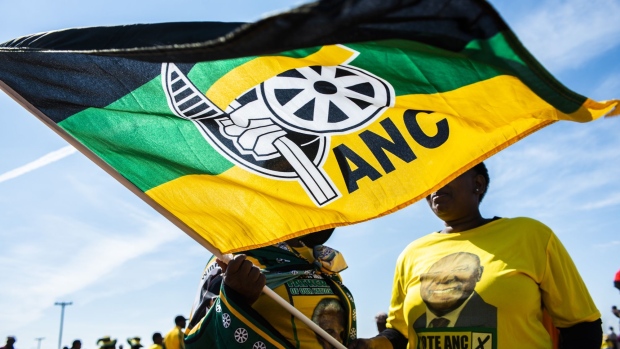
South Africa seeks coalition government as ANC popularity declines
With the ruling African National Congress (ANC) likely to miss a majority for the first time in 30 years of democracy, South African parties prepared for coalition negotiations on Friday.
Following Wednesday’s election, it appeared that voters were punishing the erstwhile liberation movement for years of economic deterioration that have left many people impoverished, even though the late Nelson Mandela’s party was expected to remain the greatest political force.
The African general Congress (ANC) received 41.8% of the votes with results from around 70% of voting places, a sharp decline from the 57.5% it received in the previous general election in 2019.
With 22.6% of the vote, the pro-business Democratic Alliance (DA) came in second. Former president Jacob Zuma’s new party, uMkhonto we Sizwe (MK), was gaining ground on the ANC with a 12.2% support share, especially in KwaZulu-Natal, the province where Zuma was born.
Marxist Economic Freedom Fighters (EFF), with 9.5% of the vote, were presently the third-largest party in parliament, but MK has surpassed them.
The number of seats that political parties receive in the National Assembly, which subsequently chooses the next president, is determined by their share of the vote.
That might still be President Cyril Ramaphosa, the head of the ANC. A poor performance at the poll, however, could spark a challenge to the leadership, but ANC Deputy Secretary-General Nomvula Mokonyane declared he would not step down.
“Nobody will step down… “All of us, collectively, are still convinced that Ramaphosa must continue serving as the ANC president,” she said to reporters at the results center.
“The ANC leadership will convene, and ANC structures will be consulted. We are not speaking to anyone right now,” she stated.
According to analysts, the ANC may yet earn more than 42% of the vote even though it was unable to regain a parliamentary majority at this point in the vote count.
According to Reza Omar, director of strategic research at Citizen Surveys, “the real question is 42% or 44%,” as reported by Reuters.
“Limpopo, Eastern Cape and Northwest are ANC strongholds and some votes still have to be counted from these provinces.”
Since the historic 1994 referendum that overthrew white minority rule, the African National Congress (ANC) has won every prior national election. However, in the past ten years, South Africans have witnessed the economy stagnate, unemployment and poverty rise, and infrastructure deteriorate, resulting in frequent power outages.
“DEADLINE COALITION”
The parties that the ANC would contact to form a coalition and stay in power, as well as any additional conversations that might be taking place behind closed doors, were the subject of much speculation.
Calls would begin over the weekend, according to DA leader John Steenhuisen, whose first action would be to speak with other members of the Multi-Party Charter (MPC), an alliance of eleven opposition parties that was established prior to the election, to see whether it might be expanded.
“The election (has) taken place now, we’ve got to play the hand that the voters have given us so we will look at a variety of options that will exist,” he stated to Reuters.
Without enlisting the EFF or MK, which seemed extremely unlikely, there was no way for the MPC’s member parties to win more than 50% of the vote share and seats in parliament as a whole. The largest party in the MPC, the DA, has branded such groups as radical and declared that a collaboration between them and the ANC would be a “doomsday coalition”.
Despite the fact that the DA has continuously criticized the ANC and stated that it wants it removed from office, Steenhuisen did not rule out working with the ANC to oppose such a coalition before to the election.
However, the MK stated that if Ramaphosa continued to head the ANC, it would not be able to work together.
“With whom do we interact? groups that are patriotic and seek to guarantee change. They are progressive, not Cyril Ramaphosa’s ANC.
MK spokeswoman Nhlamulo Ndhlela told Reuters, “It doesn’t mean that we won’t engage with the ANC but not the ANC of Cyril Ramaphosa.”
Because of the uncertainty, the price of the nation’s primary globally traded bonds fell by as much as 1.3 cents on the U.S. dollar in the government bond market. The bonds were at their lowest point in nearly a month as a result of the third consecutive decline.
Concerns about the ANC potentially forming a coalition with the EFF, which wants to seize farms held by white people and nationalize banks and mines, or with Zuma’s MK, which also advocates for land confiscation, have been expressed by investors and the business community.
electoral authorities have stated they intend to make an announcement on Sunday, although the electoral commission is legally required to provide complete provisional results within seven days.
All Categories
Recent Posts
Tags
+13162306000
zoneyetu@yahoo.com



